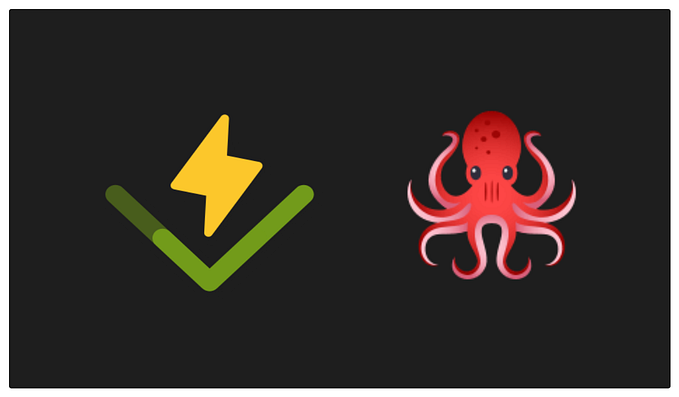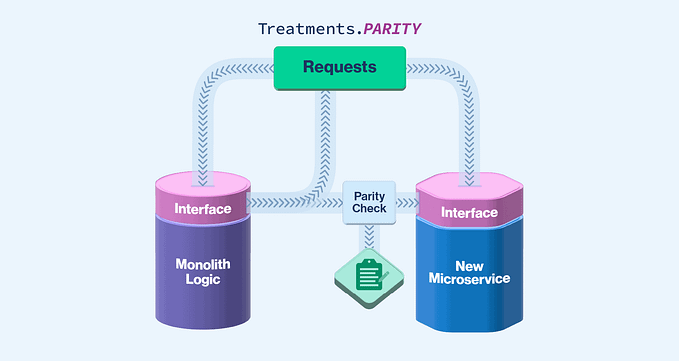Introducing @mockapi/msw, mock an API server for your entities without writing any code with Mock Service Worker
Testing (Series)
Understanding Unit Test From The Best Book On The Topic
Testing Ag-Grid React’s Custom Cell Renderer Component
Testing ErrorFallback Component
Testing useDebouncedValue Hook
Testing a HTTP Client Adaptor Hook useClient
Testing a HTTP Error Handler Utility Hook
Testing a Generic Fetch Item List hook with Mock Service
Introducing @mockapi/msw, mock an API server for your entities without writing any code with Mock Service Worker
Testing a Generic Save Item Hook with MSW and @mockapi/msw
Testing a Text Field component integrating Mui’s Text Field with React Hook Form
The problem
Inspired by Kent C Dodds’s blog post Stop mocking fetch, I started to
use Mock Service Worker to mock an API server both for unit testing with jest and for the Browser.
However, just like developing a real API server, writing every endpoint is tedious, and it can get messy very quickly.
@mockapi/msw is born to solve this problem. With @mockapi/msw, you can mock a whole set of standard CRUD endpoints for any entity without any code. All you have to do is configure your base URL and wire it up with msw.
Endpoints Provided
- GET:
baseUrl/entity, get all entities - GET:
baseUrl/entity/:id, get an entity by id - POST:
baseUrl/entity, create an entity - PUT:
baseUrl/entity/:id, update an entity - DELETE:
baseUrl/entity/:id, delete an entity
You can override the above endpoints by providing handlers with identical signatures.
You can also build your own set of CRUD endpoints by building on top of or replacing the handlerfactory(introduced below) using the provided repository methods for data access.
You can extend the endpoints by wiring up your endpoints.
Setup
Install @mockapi/msw
yarn add --dev @mockapi/msw
or
npm install --dev @mockapi/mswConfigure @mockapi/msw
1. Create a typescript file with the following content:
// server.ts
import {configMockApi} from '@mockapi/msw';
export const baseUrl = 'http://localhost:5000'; // change to your own base url
export const {handlerFactory, repositoryFactory, clearAllData} = configMockApi({
baseUrl: baseUrl,
});handlerFactoryis the function to generate and wire up all the endpoints.repositoryFactoryis the function to access mocked data in your custom endpoints and tests.configMockApitakes astoreof typeStore<T extends BaseEntity>as an argument to configure what storage the mocked data will be stored. By default, it useslocalStorage. You can also use sessionStorage orIndexedDB to store the data.
// Store.ts
export type Store<T extends BaseEntity> = {
setItem: (key: string, value: T[]) => void;
getItem: (key: string) => T[] | null;
clearAll: () => void;
};
// BaseEntity.ts
export interface BaseEntity extends Record<string, unknown> {
id: string | number;
}2. Create your mock entity:
// hero.ts
import {repositoryFactory} from '../server/server';
export type Hero = {
id: string;
name: string;
};
export const heroKey = 'Hero';
export const heroSeeds: Hero[] = [
{
id: '1',
name: 'Iron Man',
},
{
id: '2',
name: 'Spider Man',
},
{
id: '3',
name: 'Ant Man',
},
];
export function seedHeroes() {
const repository = repositoryFactory<Hero>(heroKey);
repository.seed(heroSeeds);
}3. Optional: extend endpoints and override provided endpoints. You can skip this step if you don’t need to extend or override the endpoints.
The handlerFactory takes a second parameter of type RestHandler[], which will take precedence over the provided endpoints.
// heroHandler.ts
import {getDefaultGetItemsResponse} from '@mockapi/msw';
import {Hero, heroKey} from './hero';
import {rest} from 'msw';
import {baseUrl, repositoryFactory} from '../server/server';
export const heroHandlers = [
// override: GET: `baseUrl/hero`
rest.get(`${baseUrl}/${heroKey}`, (req, res, ctx) => {
// getDefaultGetItemsResponse is a utility function to get items from the store and return a Result<T[]> containing either an error response or all the items in store.
const defaultHttpResponse = getDefaultGetItemsResponse<Hero>(
heroKey,
repositoryFactory<Hero>(heroKey)
)(res, ctx);
if (defaultHttpResponse.response) {
return defaultHttpResponse.response;
}
const search = req.url.searchParams.get('search');
const result = defaultHttpResponse.data.filter((hero) =>
search ? hero.name.toLowerCase().includes(search?.toLowerCase()) : true
);
return res(ctx.status(200), ctx.json(result));
}),
// new endpoint: GET: `baseUrl/hero/getByName/:name`
rest.get(`${baseUrl}/${heroKey}/getByName/:name`, (req, res, ctx) => {
const defaultHttpResponse = getDefaultGetItemsResponse<Hero>(
heroKey,
repositoryFactory<Hero>(heroKey)
)(res, ctx);
if (defaultHttpResponse.response) {
return defaultHttpResponse.response;
}
const {name} = req.params;
const result = defaultHttpResponse.data.find((hero) => hero.name === name);
return res(ctx.status(200), ctx.json(result));
}),
];4. Wire up with Mock Service Work for jest. For browser integration, read the msw doc here.
//starup.ts
import {setupServer} from 'msw/node';
import {
heroHandlers,
heroKey,
seedHeroes
} from '../entity';
import {clearAllData, handlerFactory} from './server';
const handlers = [
...handlerFactory(heroKey, heroHandlers),
// other endpoints, for example:
//...handlerFactory(todoKey),
];
const server = setupServer(...handlers);
beforeAll(() => server.listen());
beforeEach(() => {
seedHeroes();
// other data seeding, for example:
//seedTodos();
});
afterEach(() => {
clearAllData();
server.resetHandlers();
});
afterAll(() => server.close());5. Wire up with jest
//jest.setup.ts
import './src/lib/server/startup';//jest.config.js
module.exports = {
//other configurations
//...
setupFilesAfterEnv: ['./jest.setup.ts']
};
Usage
If set up correctly, you can use the mock data in your tests like the below example. For more examples, please check out /packages/tests.
// getAll.spec.ts
import {baseUrl} from '../server/server';
import {todoKey, todoSeeds} from '../entities';
import axios from 'axios';
import {requestErrorResponse} from '@mockapi/msw';
describe('Get Items Endpoint', function () {
it('should get todos', async function () {
const data = await axios.get(`${baseUrl}/${todoKey}`);
expect(data.data).toMatchObject(todoSeeds);
});
it('should throw error on request', async function () {
requestErrorResponse();
try {
await axios.get(`${baseUrl}/${todoKey}`);
} catch (e: any) {
expect(e.response.status).toBe(400);
expect(e.response.data).toMatchInlineSnapshot(`
Object {
"detail": "Something Went Wrong on The Server",
}
`);
}
});
});Error Response
You can use the provided requestErrorResponse function to tell the mocked endpoint to return an error response blindly. To make requestErrorResponse work for your endpoints, you need to add the following code to your endpoint before any other code:
rest.get(`${baseUrl}/your-endpoint`, (req, res, ctx) => {
const errorResponse = getErrorResponse(res, ctx);
if (errorResponse) {
return {response: errorResponse, data: []};
}
// do your stuff
});For your information, the code for getErrorResponse is as below. You can implement your own if you want.
// getErrorResponse.ts
import {DefaultRequestBody, ResponseComposition, RestContext} from 'msw';
const errorKey = '400';
export function requestErrorResponse() {
localStorage.setItem(errorKey, 'true');
}
export function getErrorResponse(res: ResponseComposition<DefaultRequestBody>, ctx: RestContext) {
if (localStorage.getItem(errorKey)) {
return res(
ctx.status(400),
ctx.json({
detail: 'Something Went Wrong on The Server',
})
);
}
return;
}Originally published at https://dev.to on January 14, 2022.

![Dotnet WebAPI [FromBody] receive null unexpectedly?](https://miro.medium.com/v2/resize:fit:679/1*3eOHN6ihMc1uXilxB7ldUQ.png)





